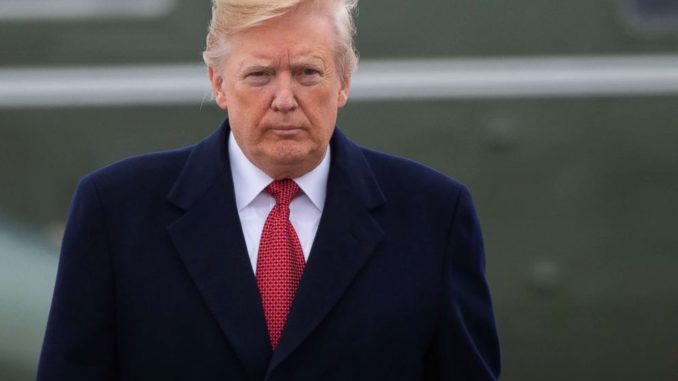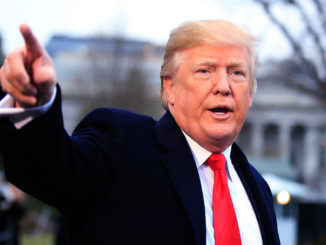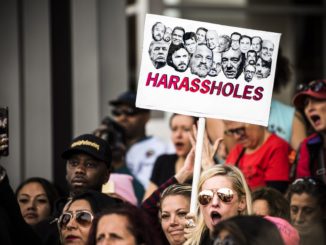
Miya Medina
Staff Writer
In the most recent act of his agenda against immigration, President Trump is trying to end birthright citizenship in the United States.
In an interview with Axios, Trump stated that he is trying to draw up an executive order to repeal the 14th Amendment.
The 14th Amendment states that, “All persons born or naturalized in the United States, and subject to the jurisdiction thereof, are citizens of the United States and of the State wherein they reside.” This means that children born on United States territory are citizens no matter the legal status of their parents. There are over 30 countries that grant birthright citizenship contrary to Trump’s claim that the United States was the only one.
Trump also explained that he thought he needed an act by Congress or a constitutional amendment to accomplish this repeal, but was recently told by the White House Counsel’s Office that all he needed was an executive order.
Both supporters and detractors of Trump’s anti-immigrant policies, argue that such an act cannot be done by executive order alone. In an interview with radio station WVLK, retiring Speaker of the House, Paul Ryan, said that it “obviously” could not be done so easily as well as deeming it unconstitutional.
This is something that Trump promised to do during his campaign for presidency in 2016. Though he has not mentioned it again until around the time of midterm elections. Some are saying that this was a political move to strengthen his base before they voted, but others believe this is something he could actually go through with. Dominican’s Title V Project Manager, Fanny Lopez-Benitez, says that Trump actually moving forward with this plan does not surprise her. “He will try to do it just to see how far he can get, I don’t put that past him.” Lopez-Benitez also explained that while Trump is pushing a harmful narrative, she thinks not many people are taking it seriously because of how difficult it would be to achieve. “I think they [students] are more worried about their families being detained and getting deported.” It is unclear whether or not this executive order would include stripping birthright citizenship retroactively.
The student leader of Dominican Immigrant Student Collective (DISC), Diana Hernandez, stressed that this is an action that has the potential to impact the whole country, not just the Dominican community. “This isn’t just our fight, this is everyone’s fight.” She went on to say that it is important to remember to support each other in this time of“overwhelming hate in our nation.” Others feel that on top of the other anti-immigration policies Trump is pushing, talking of overturning the 14th Amendment can have an adverse effect on many people.
Michelle VanNatta, an Associate Professor of Sociology and Criminology at Dominican, expressed her opinion that Trump’s move is rooted in racism and is further nurturing a country of injustice. “We know that societies with high levels of inequality, have higher levels of violence, have higher levels of stress, and lower levels of happiness.”
In the past, Dominican has held talking circles and offered counseling to undocumented students when they were caught in political turmoil. As of right now, there has been no official word from Dominican faculty on plans to address Trump’s comments or potential plans. “It’s affecting people’s abilities to come to class, to focus in class, to complete their work and their education, so definitely the more the university can do to provide support for people, the better,” VanNatta stated. Trump has continued to criticize the 14th Amendment at rallies since the initial interview, but it seems that no official draft of the executive order has been made yet. “When things swing to a really negative level, there’s often a swing back to a positive level,” VanNatta voiced, “but it doesn’t just happen on its own. People start responding to the oppression and exploitation that they’re seeing or experiencing and they get together to try and change it.”
mmedina@my.dom.edu



